Even if today’s math lesson may have felt like it lasted a thousand years, the truth is, we don’t have unlimited time with our kids at home. We must choose wisely how to spend our minutes as they become our lives, our memories, and our relationships.
My children are grown up now, and I want to share what I feel is the most effective, most enjoyable, and most memorable way to teach—and to caution you against methods that may rob your time and suck you dry.
If you can educate your kids in deep, nuanced ways and actually enjoy the process, why not educate them well and leave them with a lifelong love of learning?
Here are five ways a literature-based approach fits the way God wired our brains, is stronger academically, promotes empathy, uses time efficiently, and is just plain more enjoyable than a traditional textbook or rote-memory approach.
1. The Brain Loves a Story
Your brain is wired to learn through story. From a scientific perspective, when you read a story, it lights up more of your brain than reading that same information as a basic fact.
In simplified terms, your brain responds in the same way as if you had actually lived that experience. So you are better able to remember a story than an isolated fact, because—according to your brain—you’ve been there.
2. Context Is King
Memorization has its place. Scripture memory, for instance, is a high priority for me in the Sonlight Instructor’s Guides, and we all need to drill multiplication tables. But most learning happens best in context.
We want our kids not just to memorize lists, but to understand the depth behind that information and make connections.
We don’t want to give our kids the false pride that because they can name 1861 as the start of the Civil War that they “know about that already” unless we also help them understand the intricacies of that tragic moment in history.
A literature-based approach gives kids a deeper understanding of history instead of superficial knowledge of names and dates. They can see that ideas have consequences and learn how those ideas connect in history.
3. The Empathy Factor
Good literature stimulates empathy in a way that bare facts can’t. With a lit-rich approach, our students not only learn the facts but also gain insight into how people feel.
Years ago, our family was discussing racism in history. I was shocked when my son-in-law (who had memorized dates and information about civil rights in public school) said, “It wasn’t all that bad, was it?” You should have heard the gasps from my children as they filled him in on all they had learned from books like Roll of Thunder, Hear My Cry (set before the Civil Rights Movement). They hadn’t merely read the facts; they identified with the plight of those characters and were quick to share the characters' stories and their pain.
When we engage in literature-based education, we walk with characters in their unique situations. We sit with people in their sorrow and victory and watch the consequences of ideas unfold.
4. More Time for Deeper Learning
Less time spent memorizing dates means you can use your time on higher priorities. In this day and age, it’s easy enough to look up a date, and contextual knowledge can help kids triangulate a point in history when needed.
Of course, it’s not bad to teach important dates (our Sonlight Timeline Book helps with this), but it makes sense to weigh the amount of time we spend here with our long-term goals. Give the whole story, and you place natural markers in your children’s minds that help them make sense of history.
5. The Joy of Great Books
A literature-based approach makes learning enjoyable for kids and parents and leads to a lifelong love of learning. Drilling by rote memorization for every subject quickly loses its luster.
We can pull out all our motivational tricks, but self-motivation (what we’re truly after!) happens when children’s curiosity and imaginations are so engaged that they hunger for more. There’s no reason to squash their love of learning at an early age by making school into something to slog through and check off. Instead, offer the kind of learning that draws them in and gives you memories together.
Who doesn’t want “cuddle up on the couch with a good book” on the to-do list?
Your children will not only remember key aspects of history, they will also remember the time they bonded with you and the fact that you were enjoying it, too. I’d call that a success.
All the homeschool styles and methods can be overwhelming. Maybe your head is swimming as you weigh a literature-based approach compared to Charlotte Mason, classical, unschooling, eclectic, traditional, school-at-home, or Montessori. Maybe you’ve been homeschooling, but the method you’re trying doesn't match what you really want for your family.
The Sonlight Advisors are happy to chat with you about your unique situation so you can find a homeschool fit that brings delight into your every day—no memorization required.
Want more encouragement?
Sign up for Sonlight's bi-weekly e-newsletter
You'll be encouraged by the words of founder Sarita Holzmann, inspired by real-life stories from other homeschoolers, pick up practical tips for the journey and more.


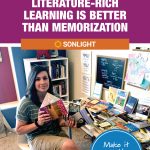
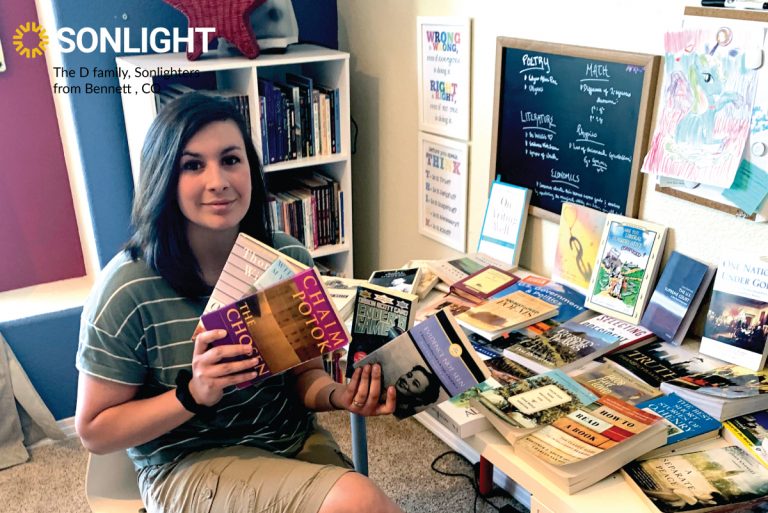
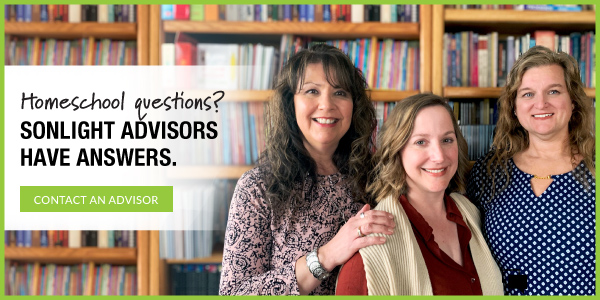
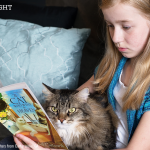
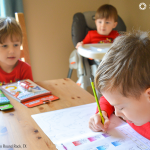
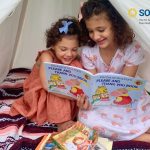



2 Comments